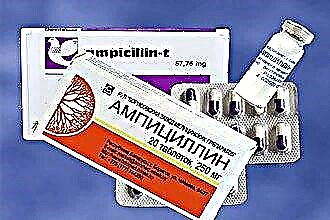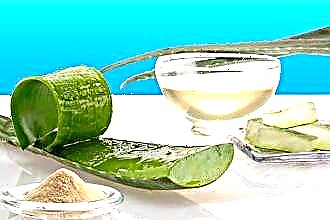What to do with ear pain? Ear pain is a symptom that signals the presence of pathological processes of an inflammatory or reflex nature. Ignoring the problem can cause serious diseases such as mastoiditis, acoustic neuritis, hearing loss, deafness, etc. Ear treatment is carried out in accordance with the causes of the discomfort.
Treatment for ear pain involves the use of medication and physical therapy. In the presence of purulent processes in the organ of hearing, threatening inflammation of the meninges or the emergence of malignant tumors, otosurgeons perform surgical treatment of ENT diseases. Timely referral to a specialist contributes to the regression of catarrhal processes and a speedy recovery.
Causes of pain syndrome

What to do if your ear hurts? To determine the correct course of treatment for a disease, it is necessary to find out the cause of its occurrence, which can be infectious or non-infectious. The type of medications that will be used in the future to relieve pain syndrome directly depends on etiological factors.
The main reasons for the occurrence of discomfort in the area of the hearing organ include:
- otitis;
- lymphadenitis;
- mastoiditis;
- barotrauma;
- furunculosis;
- perichondritis;
- neuritis;
- mumps;
- adenoiditis;
- clogging with a sulfur plug;
- temporomandibular arthritis.
According to statistics, in more than 75% of cases, pain occurs as a result of the development of ear pathologies and mechanical injury to the tympanic membrane. With an infectious lesion of the organ of hearing, the tissues of the mucous epithelium melt, which causes discomfort and shooting pains.
First aid
My ear hurts badly, what should I do? Before the arrival of the doctor, you can stop the manifestations of ear pathology on your own. In case of slight hyperthermia, a warming compress should be applied. It will contribute to the expansion of blood vessels and the elimination of spasmodic pain. To do this, insert a cotton swab dipped in boric alcohol into the ear canal.
Important! Ear drops should not be used until a diagnosis is made. In the event of a perforation of the ear membrane, they provoke severe tissue edema, which will lead to dysfunction of the Eustachian tube.
How to relieve ear pain? Experts advise the use of non-narcotic analgesics to relieve pain. No less effective will be topical preparations in the form of ointments or creams. They can be used to lubricate the auricle, a part of the external auditory sea otter and the behind the ear.
Compress treatment
If the ear hurts, how to treat it? Compressor therapy allows you to quickly stop the clinical manifestations of ear pathologies, in particular otitis media and mastoiditis. Ears can be treated with two types of compresses:
- oil - have a mild warming effect on the affected tissues, which leads to the acceleration of metabolic processes and the normalization of blood circulation in the affected tissues. This has a positive effect on the rate of regeneration of damaged cells and the elimination of pain syndrome;
- alcohol - have not only warming, but also an antiseptic effect. They inhibit the activity of pathogens, which contributes to a decrease in their number in the focus of inflammation.
Do not use compresses if you have otorrhea. Warming up will contribute to an increase in the number of pathogenic agents in the focus of inflammation.
How to get rid of ear pain? When applying a compress, the following rules must be observed:
- fold the gauze in several layers according to the size of the auricle;
- make a hole in the middle of the gauze;
- moisten gauze with alcohol or oil;
- apply a compress to the auricle and cover it with plastic;
- after 2-3 hours, remove the compress.
The compress should not block the external auditory canal, so there should be holes in the gauze and plastic.
Analgesics
There is a sharp pain in the ear, what should I do? Pulsating and shooting pains can be eliminated with the help of non-narcotic analgesics. They are conventionally divided into two types:
- analgesics-antipyretics - relieve pain and hyperthermia provoked by inflammatory processes;
- non-steroidal anti-inflammatory drugs - eliminate pain syndrome, high fever and inflammation in the lesions.
According to experts, it is advisable to treat ears with the following types of analgesics:
- Brufen;
- "Pentalgin";
- Diclofenac;
- Naproxen;
- "Paracetamol";
- "Baralgin".
What to do with acute ear pain? There is a separate group of drugs, which include components that affect the activity of the central and autonomic nervous system. They not only relieve pain, but also have a sedative effect.
Antibiotics
What to do when an adult's ear hurts? If, in addition to the pain syndrome, the patient has hyperthermia and suppuration, in 80% of cases this signals the presence of a bacterial infection in the focus of inflammation. In this case, antibacterial drugs will be required to eliminate the pathology.
Only the attending physician can select antibiotics, based on the results of bacterial culture and the nature of the manifestation of inflammatory reactions.
How to relieve ear pain? In cases where discomfort is caused by the development of bacterial flora, it is necessary to include broad-spectrum drugs from the group of penicillins, cephalosporins or macrolides in the conservative treatment regimen. You can treat the ear with the following medications:
 "Summamed" is a drug from the group of macrolide antibiotics, which has a pronounced bacteriostatic effect. Interferes with the synthesis of microbial cells, which leads to the elimination of pathogenic flora in the lesions;
"Summamed" is a drug from the group of macrolide antibiotics, which has a pronounced bacteriostatic effect. Interferes with the synthesis of microbial cells, which leads to the elimination of pathogenic flora in the lesions;- "Ampicillin" is a semi-synthetic antibiotic, the components of which are active against most gram-positive bacteria (Proteus, Klebsiella, influenza, Friedlander's bacillus);
- "Ciprofloxacin" is a broad-spectrum drug that eliminates inflammation provoked by meningococci, staphylococci, Proteus, gonococci and other bacteria. Effective in the treatment of complicated ear pathologies.
How is a sore ear treated? It should be noted that the course of antibiotic therapy should not be interrupted when the symptoms of the disease are alleviated. This can cause an exacerbation of the disease and its transition to a chronic head start.
Ear drops
If my ear hurts a lot, what should I do? It is possible to stop local manifestations of the disease with the help of external preparations. Otolaryngologists consider ear drops to be among the most effective means of local action. Their components quickly penetrate into the sites of localization of lesions, which contributes to the relief of pain syndrome, elimination of edema and inflammatory processes.
You can quickly relieve ear pain with the following types of drugs:
- "Anauran" - ear drops with local anesthetic and antibacterial action. The active components of the drug contribute to the elimination of most strains of gram-positive microbes;
- Ciprofarm is a broad-spectrum antibacterial agent that inhibits the synthesis of DNA kinase inside bacterial cells. Quickly eliminates inflammation and swelling in the mucous epithelium;
- Otipax is a local anesthetic, antiphlogistic and disinfectant drug.Kills pathogens in the lesions, which leads to a rapid regression of inflammatory processes.
Drops do not penetrate into the ear labyrinth, therefore, in the case of the development of labyrinthitis, it is impossible to limit the use of topical agents. What to do if your ear hurts badly? Systemic drugs, which are administered orally or are injected intramuscularly, will help to eliminate catarrhal processes and concomitant symptoms.
Vasoconstrictor drops
Discomfort in the organ of hearing can be associated with the creation of negative pressure in the tympanic cavity and the accumulation of transudate in it, pressing on the ear membrane. How to cure the ear in this case? To normalize the outflow of fluid from the middle ear and restore normal pressure in it, it is necessary to normalize the drainage function of the Eustachian tube.
As a rule, blockage of the mouth of the Eustachian tube is caused by the development of inflammatory processes in the nasopharynx. To eliminate puffiness and unblock the auditory canal, which communicates the middle ear and nasopharynx, use vasoconstrictor drops:
- Xilen;
- "Nazivin";
- Galazolin;
- Rinorus;
- Rino-Stop;
- Otrivin;
- Snoop.
How to cure ear pain? In the presence of ear pathologies, otolaryngologists recommend using medications that include sea salt. It has a pronounced anti-inflammatory and antimicrobial effect, which helps to eliminate infection in the nasopharynx and, accordingly, in the Eustachian tube.
Physiotherapy procedures
What to do when your ear hurts? At the stage of regression of inflammatory processes, physiotherapy procedures can be used to treat ear diseases. They normalize blood microcirculation in the affected tissues, help eliminate intoxication and asthenoneurotic syndrome. In the treatment of otitis media and labyrinthitis, the following are most often used:
- laser therapy is a physiotherapeutic procedure based on the effect on the foci of inflammation with a beam of narrowly directed monochromic light. Improves blood supply to tissues, accelerates their regeneration, activates immune cells, stops pain reactions and reduces bacterial contamination in the foci of inflammation;
- UV therapy - exposure of affected tissues to electromagnetic waves in the range from 200 to 400 nm. Promotes an increase in local immunity, acceleration of cellular metabolism and elimination of puffiness;
- galvanotherapy is a procedure in which the tissues affected by inflammation are exposed to a continuous low voltage current. The best online casinos in Russia: Honest casino rating TOP 10 at the beginning of 2021 Promotes a change in the charge of ions, which leads to an acceleration of biochemical processes and, accordingly, epithelialization of tissues.
Important! UV therapy should not be used in the presence of chronic inflammation in the upper respiratory tract and fungal infection of the mucous membranes of the upper respiratory tract.
Before treating ear pain with physiotherapy, you should consult your doctor. Experts advise against resorting to this type of treatment in the presence of acute inflammation and otorrhea. This can only accelerate the process of spreading the foci of inflammation inside the cranium, which will entail serious consequences.
Surgery
What to do if your ears hurt? In 30% of cases, pain associated with persistent hearing loss is a direct indication for surgical treatment. Destruction of soft tissue and bone structures is one of the key causes of auditory analyzer dysfunction.
Late diagnosis and treatment of pathologies leads to the development of deafness and other severe complications. How to quickly heal an ear? It is possible to prevent complications and restore damaged structures of the sound-conducting system by surgery. For this, the following types of surgical intervention can be used:
- tympanoplasty - a surgical procedure during which the otosurgeon restores the ossicular chain in case of partial or complete destruction of its components;
- myringoplasty - an operation to restore the integrity of the ear membrane using a tissue flap taken from an incision in the ear cavity, or artificial material;
- endoural surgery is a sanitizing procedure that involves cleansing the ear cavity from purulent exudate and cleaning the decayed bone tissue in the mastoid process;
- stapedoplasty - surgery, the essence of which is the prosthetics of immobilized auditory ossicles;
- parotid fistula resection - an operation to remove the fistulous tract behind the ear;
- removal of exostoses - excision of bone growths (exostoses) in the external auditory canal.
How to treat ears in a particular situation can only be determined by a specialist after a differential diagnosis. In the postoperative period, the patient is prescribed a course of antibiotic therapy, due to which the development of infection in the operated ear is prevented.
Alternative remedies
What to do for acute ear pain? It is possible to eliminate the manifestations of ear pathology with the help of traditional medicine. They do not contain synthetic components, which minimizes the likelihood of side effects. To eliminate the pain syndrome, the following types of funds can be used:
- decoction of bay leaves: pour 4-5 leaves with 250 ml of boiling water and leave for 3 hours. Three times a day, instill 4-5 drops of the broth into the external auditory canal for a week;
- cotton swabs with glycerin: moisten cotton wool in glycerin and put it in the sore ear for 2-3 hours. Repeat the procedure daily for 5-7 days;
almond oil: Soak a cotton swab in warmed almond oil Place a cotton swab in a sore ear daily for 2 hours.
From the article you can get a general idea of how to treat the ear. However, it is important to understand that the patient cannot make a diagnosis on his own. If pain is accompanied by severe ringing in the ears or hearing loss, you should seek the help of an otolaryngologist. Alarming symptoms may indicate the presence of destructive processes in the auditory ossicles or in the ear labyrinth.

 "Summamed" is a drug from the group of macrolide antibiotics, which has a pronounced bacteriostatic effect. Interferes with the synthesis of microbial cells, which leads to the elimination of pathogenic flora in the lesions;
"Summamed" is a drug from the group of macrolide antibiotics, which has a pronounced bacteriostatic effect. Interferes with the synthesis of microbial cells, which leads to the elimination of pathogenic flora in the lesions;

